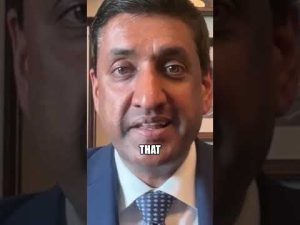In a high-stakes confirmation hearing, Pete Hegseth, President Trump’s nominee for Secretary of Defense, found himself in the crosshairs of some intense questioning. The hearing wasn’t a tea party, but rather a battleground where the topic of women serving in combat became the centerpiece of heated debates. Many of the fiercest critics during the hearing were women themselves, who took issue not only with Hegseth’s comments but also with the implications of his views on gender in the military.
During his extensive commentary on the matter, Hegseth expressed a belief that combat roles are better suited for men, even though he acknowledged that women absolutely deserve the chance to serve as long as they meet rigorous military standards. However, the way he framed this argument drew significant criticism from both sides of the aisle. Some senators, particularly on the Democratic side, accused him of suggesting that women were inherently less capable of combat. This unleashed a grammatical smackdown aboard the U.S.S. Confirmation Hearing.
For those keeping score, the debate took a particularly combative turn. Senators, especially the female ones, aimed pointed questions at Hegseth, pushing back against what they perceived to be outdated notions regarding women in warfare. They argued that this kind of rhetoric undermines the brave contributions of women currently serving in the military. With each probing inquiry, the tension mounted, and the hearing began to resemble more of a heavyweight boxing match rather than a civil discourse.
One standout moment was when Senator Tammy Duckworth, herself a veteran with combat experience, put Hegseth on the hot seat by asking him to name high-level security agreements. The questions ranged from the names of key nations in the Association of Southeast Asian Nations (ASEAN) to the nature of defense agreements the United States holds with them. Hegseth stumbled through the answers, leading many viewers to question not just his knowledge but also his qualifications for the Secretary of Defense role. It was as if Duckworth was wielding a stiletto during a street fight, aimed at cutting through the bluster to reveal what many considered a lack of preparedness.
The exchange touched on a larger societal debate over gender roles, particularly whether women can compete at the same level as men in physically demanding roles, such as those found in combat. Hegseth’s remarks, likening combat to elite sports where physicality can often dictate the game, led to accusations of being stuck in the past. Critics countered that this line of reasoning is not only outdated but also disrespectful to the women who are bravely serving today, proving that they can hold their own in combat and beyond.
As the confirmation hearing drew to a close, the underlying issues of equality and capability in the military were left hanging like an unanswered question. While some viewed Hegseth’s stance as an honest assessment based on physicality, others saw his words as a gross underestimation of women’s capabilities. In the end, the hearing was more than just about one man’s confirmation; it stirred the pot of a larger conversation regarding gender equality not just in the military, but across all areas of life. With contentious debates like these, it becomes clear that the road to equality can sometimes be as rocky as a battlefield itself.







